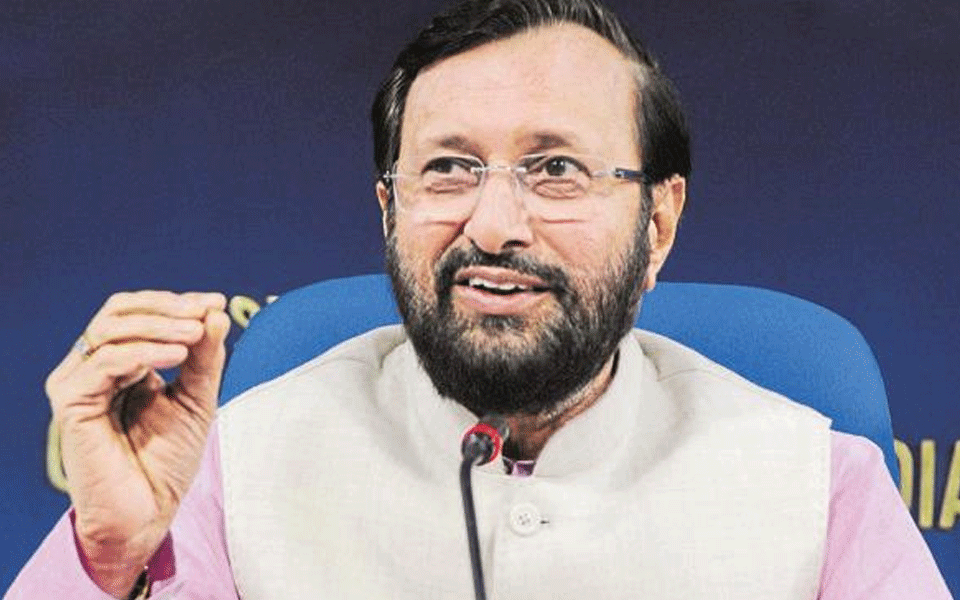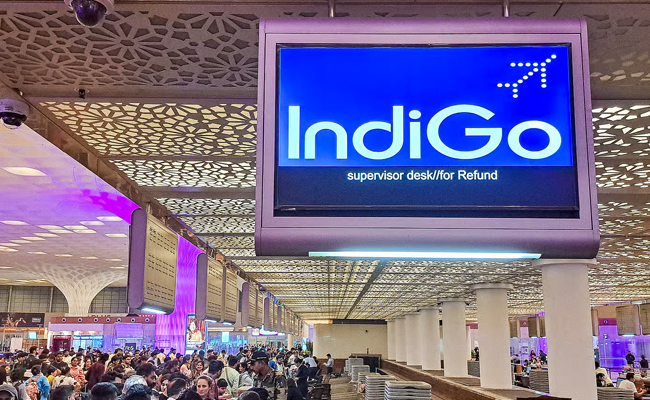New Delhi, July 23 : Even as the Lok Sabha on Monday passed an amendment bill on teachers education, Union HRD minister Prakash Javadekar announced that four-year integrated B.Ed courses will be started from the next academic year.
The Human Resource Development Minister said that the government is on the verge of formulating the National Education Policy, "which is almost ready and is giving a final shape to it".
The National Council for Teacher Education (Amendment) Bill, 2017, amends the National Council for Teacher Education Act, 1993.
It seeks to grant retrospective recognition to certain teacher education institutions and grant retrospective permission to start new courses/training in teacher education.
Replying to a debate on the bill, Javadekar said: "The institutes conducting these courses... I found there were communication gaps, misunderstanding and laxity. So, we are going to fix their responsibility. We must ensure quality education and teachers."
"The four-year composite courses are B.A (B.Ed), B.Sc (B.Ed) and B.Com (B.Ed). Those who want to become teachers can apply for these courses after Class 12. We are preparing ourselves for it," said the Minister.
Replying to a question by NCP MP Supriya Sule on conducting a study on the standards of teachers training, Javadekar said: "There are 18,600 institutes that offer B.Ed courses. There are about 1,000 private ones. No study has been conducted so far as Supriya Sule ji pointed out.
"We are going to prepare a report. We have asked these institutes to submit affidavits as to what all facilities they have and about their achievements. We have already received 8,700 affidavits whereas show-cause notices have been issued to the remaining."
Javadekar stressed the need to make the institutes accountable and transparent and said that there will be stress on quality learning.
Congress MP Deepender Hooda stressed the need for setting up a National Sports University in Haryana from where, he said, a number of medal-winning sportspersons have emerged.
He also demanded an Institutions of Eminence status to one of the prominent universities in Haryana.
TMC MP Saugata Roy emphasised improvement in standards of teachers education and suggested that more English-medium government schools should be established.
Let the Truth be known. If you read VB and like VB, please be a VB Supporter and Help us deliver the Truth to one and all.
Bengaluru (PTI): The Karnataka government has issued directions to municipal corporations across the state to regulate and prohibit feeding pigeons in public places, citing serious public health concerns.
Deputy Secretary to Government V Lakshmikanth has written to the Urban Development Department requesting it to issue directions to the Greater Bengaluru Authority (GBA) and all municipal corporations to take immediate steps to implement the measures.
In an official note dated December 16 issued by the Health and Family Welfare Department and released to the media on Wednesday, the department said uncontrolled feeding of pigeons in public places has resulted in large congregations of birds, excessive droppings and serious health concerns, particularly respiratory illnesses linked to prolonged exposure to pigeon droppings and feathers such as hypersensitivity pneumonitis and other lung diseases.
ALSO READ: Chinese GPS tracker found on seagull near Karwar Coast
"The commissioner, the Greater Bengaluru Authority and the Commissioners and chief officers of other municipal corporations shall take necessary action to mitigate the causes of dangerous disease spread by pigeon and enforce specified guidelines in their respective jurisdiction," the note said.
According to the department, these include a prohibition on feeding pigeons or causing pigeons to be fed in areas where it may cause nuisance or pose a health hazard to the public. Pigeon feeding shall be permitted only in designated areas in a controlled manner, subject to certain conditions.
"The designated areas may be selected in consultation with stakeholders. The responsibility for upkeep of the designated areas and compliance to the directions shall be taken up by some charitable organisation or an NGO. The feeding in designated areas shall be permitted only for some limited hours in the day," it said.
The note further stated that authorised officers of local authorities shall issue on-the-spot warnings and may impose fines for violation of the order, or lodge complaints to prosecute offenders under Sections 271 (Negligent act likely to spread infection of disease dangerous to life) and 272 (Malignant act likely to spread infection of disease dangerous to life) of the Bharatiya Nyaya Sanhita.
It also directed local authorities to conduct public awareness campaigns, including the display of signboards, banners and digital messages, explaining the health hazards associated with pigeon droppings and feathers, the content of the regulatory directions and penalties for violations, and alternative humane methods of bird conservation that do not endanger public health.





